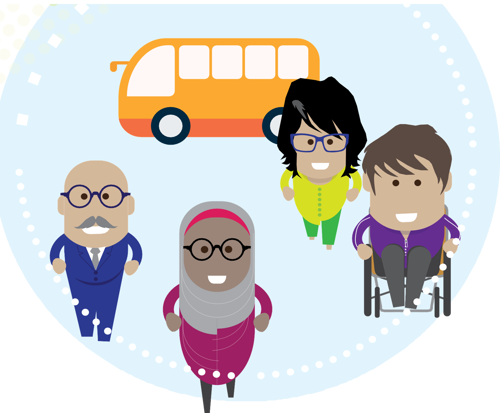A parent’s experience:
“I would absolutely recommend travel training, as someone who has been on the receiving end as a parent, it brought our son’s independence forward and gave him the confidence to be able to navigate to school and also elsewhere as well. And it gave us the confidence to allow this as well.”
Our son, who has Autism, did travel training before starting at secondary school. Our main concern was getting to school safely across a busy traffic junction. He was offered travel training, which happened over the summer holidays before school started.
The trainer did a superb job – they worked with him over a number of sessions that gradually increased his independence. At the end of the training, he got a certificate which said he was safe to travel by himself.
This was reassuring for us as parents as much as for him.
The training helped him to be more independent, firstly to go to school and back and then to do other things like going to the shops to buy milk. Before he did the travel training, we were not confident to allow that.
